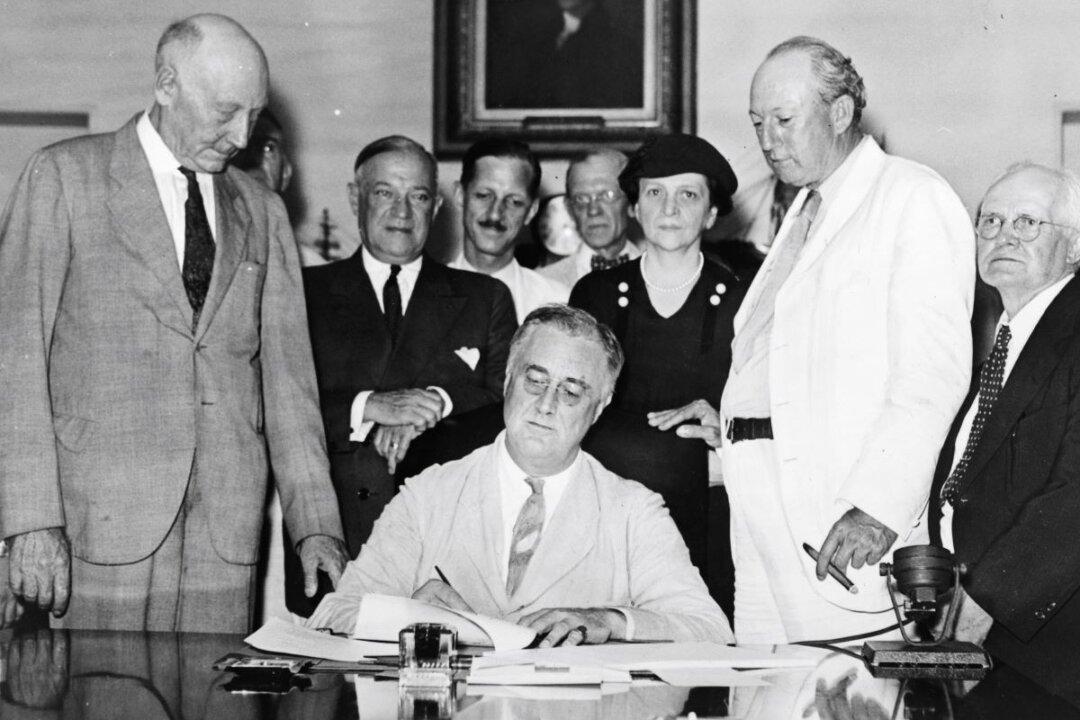Herbert Hoover stood before a crowd of Republicans at Stanford University to accept the party’s presidential nomination. It was Aug. 11, 1928, and America stood at the crescendo of the Roaring ‘20s. After the post-World War I depression, the country had dramatically rebounded under the Republican administrations of Warren G. Harding and Calvin Coolidge. America was the beacon of economic prosperity.
“We in America today are nearer to the final triumph over poverty than ever before in the history of any land,” Hoover announced. “The poor-house is vanishing from among us. We have not yet reached the goal, but given a chance to go forward with the policies of the last eight years, and we shall soon with the help of God be in sight of the day when poverty will be banished from this nation.”






